This site uses cookies, by continuing to use this site you are agreeing to their use. Learn More
portsmouth
This site uses cookies, by continuing to use this site you are agreeing to their use. Learn More
portsmouth
| Click on the thumbnails to get a larger picture, then on |
|
on the top LHS of the screen to return to this page. |
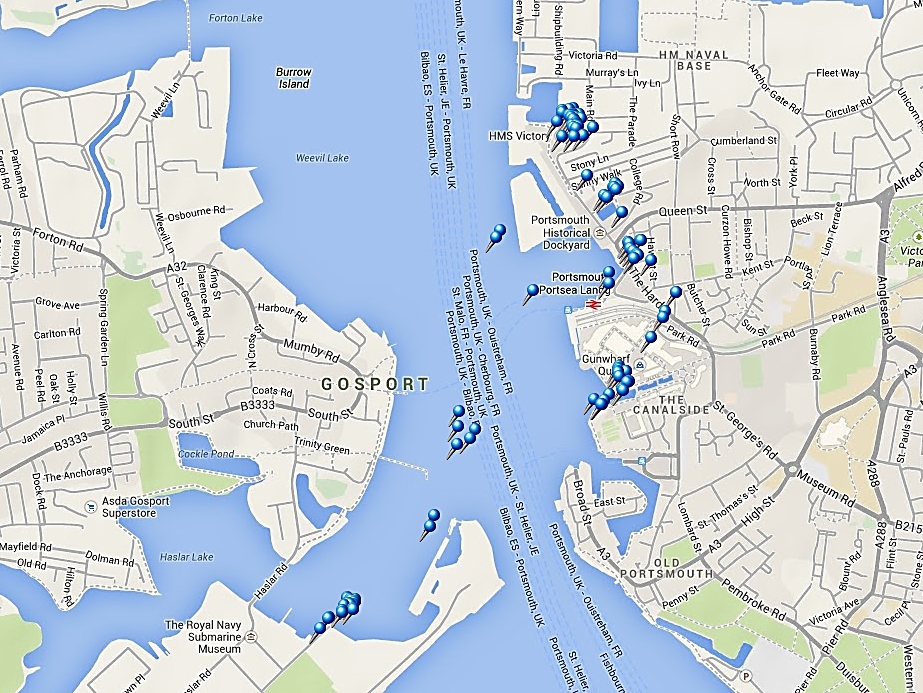
A trip organised by Probus
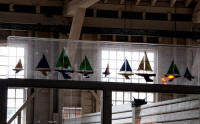 Yachts in Boathouse No. 7 |
Vast area devoted to food and retail |
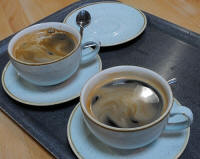 We had some very good coffee |
Rigging |
||||
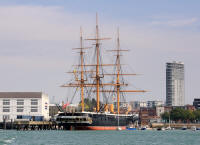 Views from the waterbus |
HMS Illustrious de-commissioning |
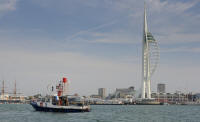 Spinnaker Tower |
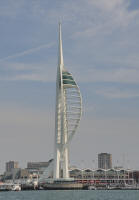 |
||||
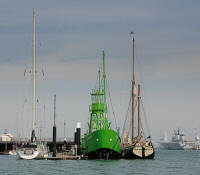 Lightship |
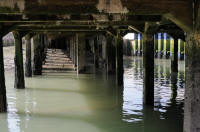 Under the submarine museum dock - love the colours |
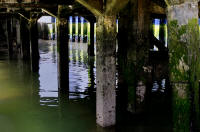 |
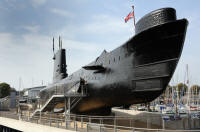 HMS Alliance |
||||
|
Dockside |
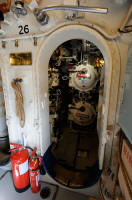 The front torpedo tubes |
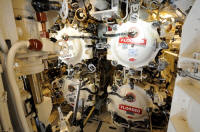 Closer view |
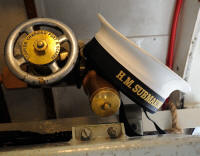 |
||||
| Nearly all the pictures taken in the submarine were on very high ISO and very slow speeds with minimal depth of field. It was just as difficult in 'Victory' and even worse in the 'Mary Rose' | |||||||
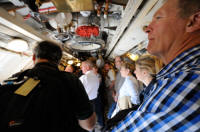 People filling the sub |
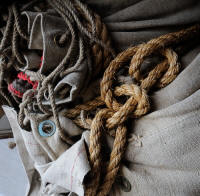 |
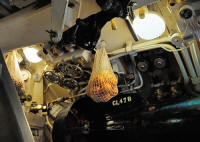 Oranges |
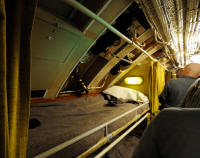 There is head room on the top bunk |
||||
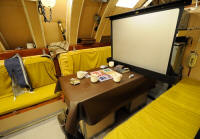 |
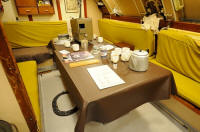 |
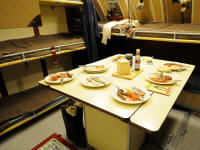 |
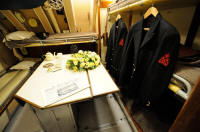 |
||||
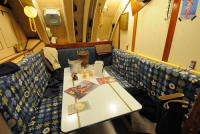 CPO mess |
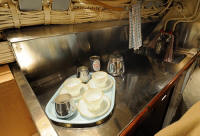 Sink |
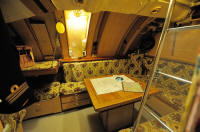 Cat basket in the Ward Room |
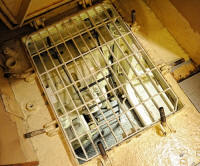 Down below |
||||
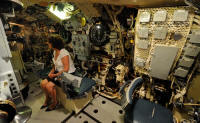 We tried the periscope here |
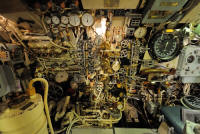 What a lot of dials |
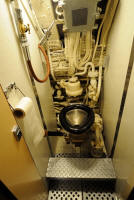 Heads |
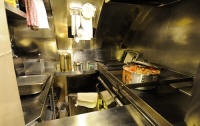 Galley - there would be no room for a traditionally built cook |
||||
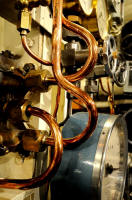 Copper pipes |
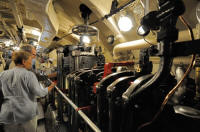 The engine |
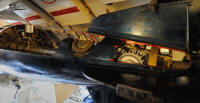 Inside a torpedo |
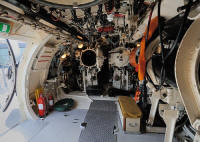 Stern of sub and exit |
||||
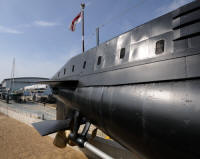 Screw |
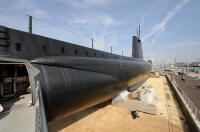 HMS Alliance |
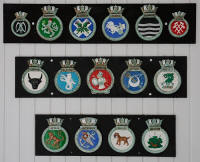 Badges |
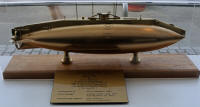 Model of the HMS 'Hollande' No.1 (1901) Sank in 1913 recovered 1982 |
||||
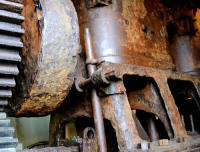 Inside submarine, rusty engine |
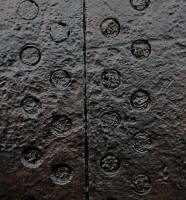 Outside of the submarine |
One torpedo tube Inside 'Hollande' |
 Dahlia |
||||
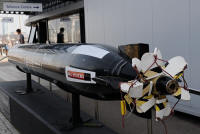 Swordfish torpedo exhibiting 'health and safety' concerns |
Crowned flagpole |
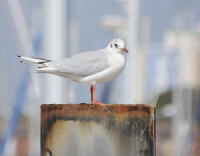 Gull |
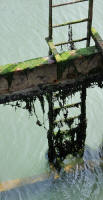 Art? |
||||
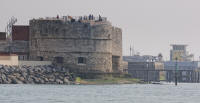 Built by Henry V to defend the harbour |
|
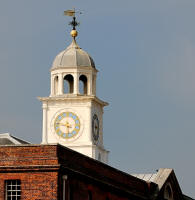 Clock tower |
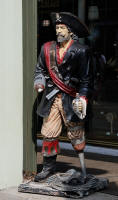 Long John Silver |
||||
 Hand riveting boat-makers in the museum |
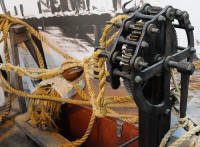 Macramé? |
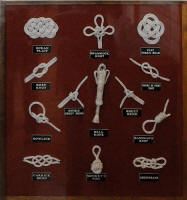 Knots |
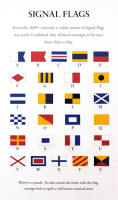 Signal flags |
||||
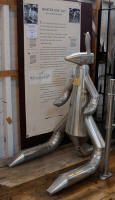 Kangaroo |
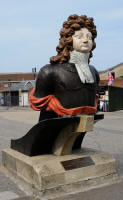 HMS Benbow figurehead |
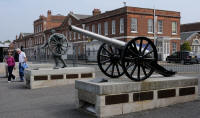 |
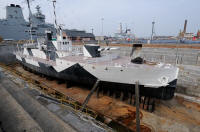 Monitor 33 (1915) being restored |
||||
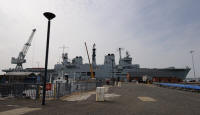 Frigate - HMS Dragon Daring Class type 45 |
 Pity that the masts on the Victory are not the full size (half mast perhaps...) |
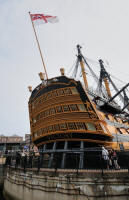 The Victory stern |
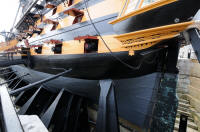 Showing the supports for the hull |
||||
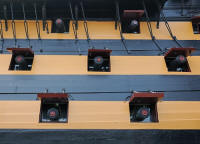 Three rows of guns |
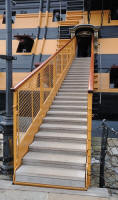 Flight to the entrance |
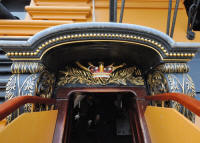 Decoration over the entrance |
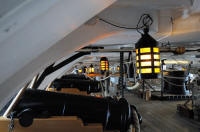 Inside - a gun deck |
||||
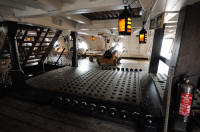 Guns and cannon balls |
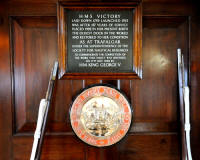 |
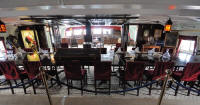 Officers Dining room
|
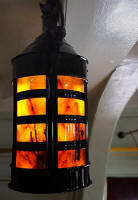 Lantern |
||||
|
HMS Victory laid down 1759, launched 1765, was after 157 years of service placed 1922 in her present berth. The oldest dock in the world and restored to her condition as at Trafalgar under the superintendence if the Society for Nautical Research. To commemorate the completion of the work this tablet was unveiled on 17th July 1928 by HM King George V |
|||||||
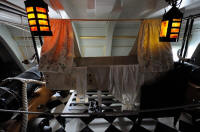 Nelson's cot |
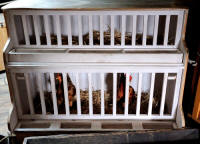 Hens for eggs for the captain |
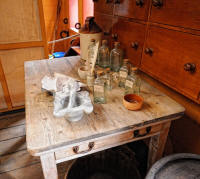 Kitchen table |
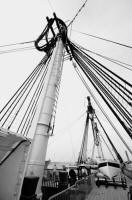 Masts |
||||
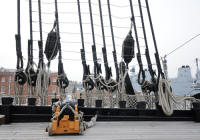 Ropes or sheets? |
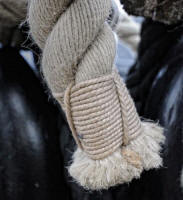 |
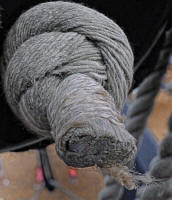 |
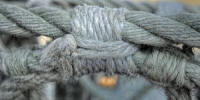 Knots and splices |
||||
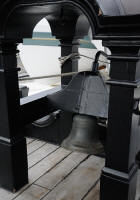 Bell |
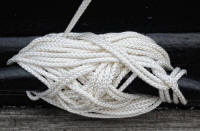 A complex knot or knitting |
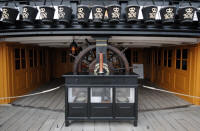 Captain's cabin |
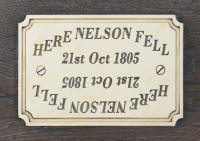 Plaque on the deck |
||||
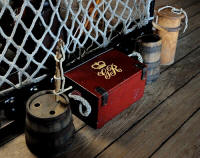 |
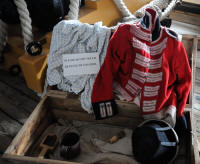 Uniform jacket |
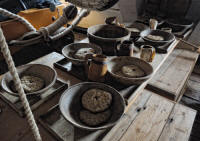 Bowls |
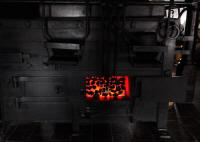 The Galley and Firehearth |
||||
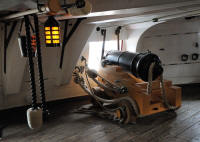 Gun |
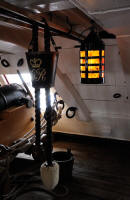 |
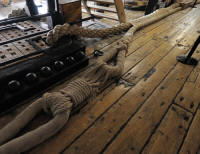 |
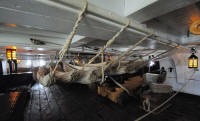 Very narrow hammocks |
||||
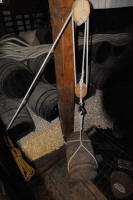 |
HOLD Water 300 tons 67,500 galls Beer 50 tons 11,250 galls Beef and Pork 30 tons Peas 15 tons Butter 2 tons Oatmeal etc. 4 tons |
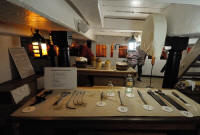 Surgical instruments |
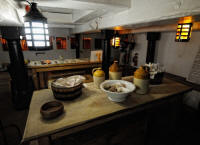 Bandages |
||||
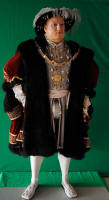 Henry VIII welcomes visitors to the 'Mary Rose' exhibit |
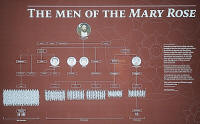 This enlarges, I hope enough to read some of it |
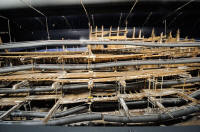 The hull of the 'Mary Rose' drying out |
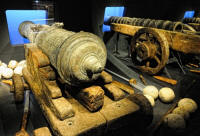 A Culverin |
||||
|
A CULVERIN was a relatively simple ancestor of the musket, and later a medieval cannon, adapted for use by the French in the 15th century, and later adapted for naval use by the English in the late 16th century. The culverin was used to bombard targets from a distance. The weapon had a relatively long barrel and a light construction. The culverin fired solid round shot projectiles with a high muzzle velocity, producing a relatively long range and flat trajectory. Round shot refers to the classic solid spherical cannonball. |
|||||||
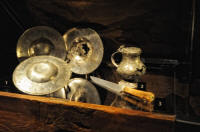 Tableware |
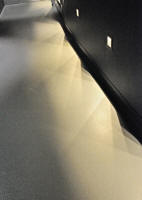 Interesting light patterns |
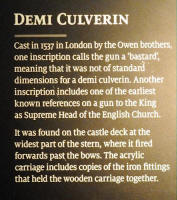 |
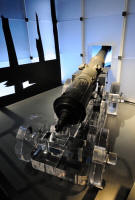 Demi Culverin |
||||
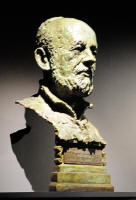 Alexander McKee OBE 1918-1992 - amateur diver who rediscovered the Mary Rose |
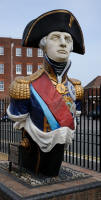 Lord Nelson |
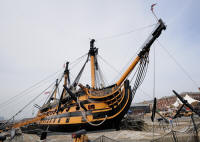 The 'Victory |
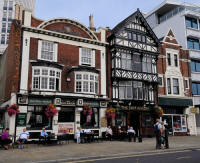 Amazing variety of architecture |
||||
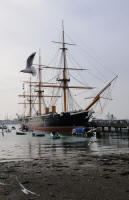 |
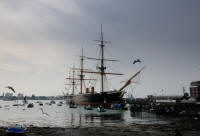 HMS Warrior 1860 |
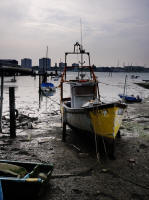 |
 |
||||
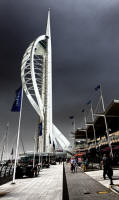 The Spinnaker Tower
|
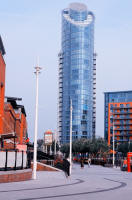 Treatment could be too much... |
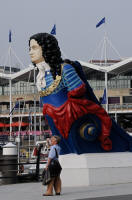 Figurehead - John Churchill 1st Duke of Marlborough |
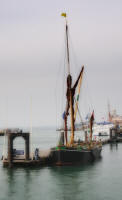 Fishing boat |
||||
|
What is he up to? |
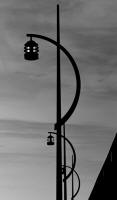 Lights |
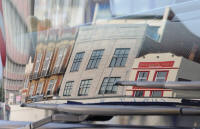 Reflections in the bus |
|||||
|
The journey home was easier than the outward journey. The driver did a sterling job. |
|||||||